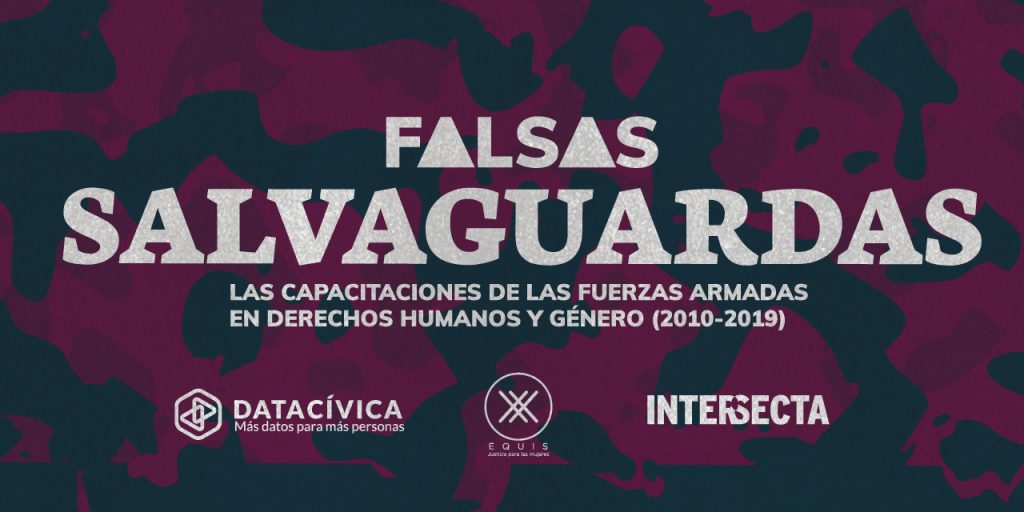
01/21/21 (written by kheinle) — Mexico’s National Human Rights Commission (Comisión Nacional de los Derechos Humanos, CNDH) issued 90 standard recommendations (recomendaciones) in 2020 against offending institutions and local, state, and federal bodies. The ombudsman generates these formal reports for the government agency against which a complaint (queja) about a human rights violation has been levied. The recommendations are a list of steps that the accused parties need to take in order to repair and remedy the damages caused.
CNDH’s 2020 Recommendations
Of the 90 such recommendations issued in 2020, the most were against Mexico’s Institute of Social Security (Instituto Mexicano del Seguro Social, IMSS), which received 12. This was followed by the Institute for Social Security and Services for State Workers (Instituto de Seguridad y Servicios Sociales de los Trabajadores del Estado, ISSSTE) and its executive leadership (Dirección General del ISSSTE), which had a combined ten. Mexico’s National Institute of Migration (Instituto Nacional de Migración, INM) had six recommendations.
The only other authorities that received more than three recommendations were the Secretary of Security and Civilian Protection (Secretaría de Seguridad y Protección Ciudadana, SSPC), the Attorney General’s Office (Fiscalía General de la República, FGR), and the State Attorney General’s Office of Chiapas (Fiscalía General del Estado de Chiapas), each with four. Below that, four institutions received three recommendations each, and another eight received two each. The remaining 87 bodies all received just one recommendation, the majority of which were municipal governments. These 90 recommendations are categorized differently than CNDH’s general recommendations, recommendations for grave violations, and recommendations based on the national protocol to prevent torture. For more information on CNDH and the recommendation process, check out Justice in Mexico’s special report on human rights violations.
Mexico’s Military and Human Rights

Mexico’s military is among the institutions that regularly receive CNDH recommendations. The military’s presence in the streets increased as former President Felipe Calderón took on Mexico’s brutally violent organized crime groups during his 2006-2012 presidency. As Justice in Mexico reported in its 2012 publication, “Armed with Impunity: Curbing Military Human Rights Abuses in Mexico,” Calderón’s massive deployment of troops increased civilian exposure and vulnerability to abuses by military personnel.
This civil-military relationship in Mexico largely mirrors that of fellow Latin American countries in Central and South America. As Adam Isacson of the Washington Office on Latin America wrote in a July 2020 article, “The past decade has already seen a worrying erosion of the region’s transitions from military rule to civilian democracy.” Despite being one of the country’s most trusted institutions, Mexico’s military is notorious for its human rights violations. The CNDH’s recommendations over the years document this civil-military relationship, as discussed below.
Secretary of National Defense
In 2011, Mexico’s Secretary National Defense (Secretaría de la Defensa Nacional, SEDENA) received 25 recommendations, and another 14 in 2012. That number then dropped to three in 2013 and one in 2014 under the Peña Nieto administration (2012-2018). It has since registered between one and five recommendations per year for the six subsequent years, including three in 2020. This brings SEDENA’s ten-year total since 2011 to 62 such recommendations. SEDENA also was part of two general recommendations (recomendaciones generales) received in 2020, as well as two recommendations involving grave violations of human rights (recomendación por violaciones graves).

Its most recent recommendation received, Recomendación 78/2020, is a reminder of the slow pace at which human rights violations are often reported, verified, and publicized. Released on December 10, 2020, the CNDH recommendation was directed to General Luis Cresencio Sandoval González, the head of SEDENA. It details the agency’s investigation and findings into the case of the arbitrary detention and torture of a soldier who was unlawfully apprehended in Morelia, Michoacán by members of the then named Judicial Military Police (Policía Judicial Militar). The military police allegedly thought the soldier was a member of a drug cartel, feigning his way a member of the military. After his arrest and subsequent torture, the victim was detained in a prison in Tepic, Nayarit. The incident happened in April 2010; the case was filed in 2017; and nearly three and half years later, CNDH published its findings in 2020.
CNDH included several recommendations for SEDENA, the institution in violation, to move forward in addressing and correcting its mistakes. In addition to “repairing damage caused to the victim,” CNDH also recommended instituting human rights training courses for SEDENA personnel that “focus on eradicating arbitrary detention, illegal holding, preventing and eradicating torture and other cruel, inhumane, and degrading treatment.”
Secretary of the Navy
Mexico’s Secretary of the Navy (Secretaría de Marina-Armada, SEMAR), meanwhile, had no standard recommendations issued against it in 2020 and just two in 2019. Over the past ten years, SEMAR received 39 recommendations, about a third less than SEDENA’s total since 2011. Its annual recommendations have varied between one and seven per year, with its highest tallies in 2013 and 2016. In 2020, SEMAR also was named in the same two general recommendations issued against SEDENA. SEMAR did, however, receive three separate recommendations involving incidences of grave violations.
SEMAR did take an important step toward protecting human rights when it signed a Collective Agreement to Collaborate (Convenio General de Colaboración) with CNDH in December 2020. Rooted in principles of building a “culture of legality” and “respect for human rights,” the agreement focuses on “preventing, training, and promoting” human rights programs between SEMAR and CNDH. This agreement comes nearly ten years after the last Collective Agreement between the two was signed in March 2011. Since then, SEMAR and CNDH have signed and implemented a number of more specific agreements to develop and execute courses, certifications, and training programs to ground SEMAR’s officers and personnel in protecting human rights.
Military Training to Protect Human Rights

Nevertheless, a recent report found serious concerns with the military’s handling of human rights violations. The report, “False Safeguards: Training of the armed forces on human rights and gender (2010-2019),” was published the week before CNDH’s Recomendación 78/2020 against SEDENA. Data Cívica, EQUIS Justicia para las Mujeres, and Intersecta – a mix of several civic institutions and national and international organizations – authored the report.
“False Safeguards”
The ten-year investigation argues that the military has failed to follow through on recommendations and even mandates made by national and international organizations to properly train members of Mexico’s military on human rights protections. This includes failure to comply with the Inter-American Court of Human Rights’ ruling from a landmark case involving Ines Fernández Ortega and Valentina Rosendo Cantú, two indigenous women who were raped by Mexican soldiers in 2002. It also includes the IACHR’s decision in 2018 that found the Mexican officials responsible for the disappearance of three family members in 2009 in Chihuahua: Nitza, José, and Rocío.
SEDENA, SEMAR, and the National Guard Respond
The three branches of the military named in “False Safeguards” – SEDENA, SEMAR, and the National Guard – all pushed back immediately on the report’s finding. For its part, SEDENA argued that is has spent “hundreds of millions of pesos on training activities.” It continued, stating that the report does not consider all of the work that SEDENA has done “to guarantee that the injustices committed against Inés Fernández Ortega, Valentina Rosendo Cantú, Nitza Paola Alvarado Espinoza, José Ángel Alvarado Herrera, and Rocío Irene Alvarado Reyes don’t happen again.” SEMAR and the National Guard made similar arguments, noting that they either were not required to comply with the IACHR’s ruling or simply did not have the capacity to provide all of the information requested from the report’s authors on their specific human rights training and protocols.
To read the full report, “False Safeguards: Training of the armed forces on human rights and gender (2010-2019)” (“Falsas salvauardas: Las capacitaciones de las fuerzas armadas en derechos humanos y género”), click here.
Sources:
“Great News for Inés Fernández Ortega and Valentina Rosendo Cantú!” Amnesty USA. October 6, 2010.
Web. “Recomendaciones.” Comisión Nacional de los Derechos Humanos. Last accessed January 3, 2021.




